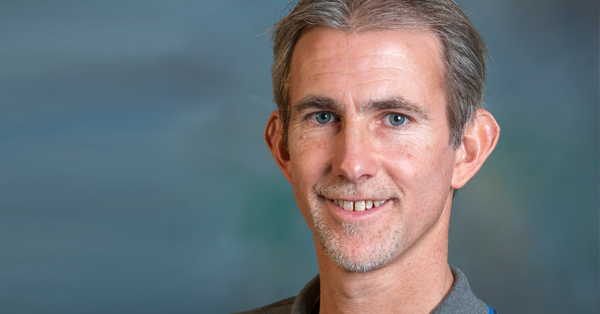
When Clint McMurphy had his first appointment with Washington University neurologist Luigi Maccotta, MD, he already knew a good deal about epilepsy. He had been diagnosed with it as a child and experienced the seizures epilepsy causes. When he was 12, he was preparing to have surgery at St. Louis Children’s Hospital to address the problem—but the seizures disappeared.
Using medication to keep his epilepsy under control, Clint essentially lived the next 16 years as though the disease had never touched him. He began his career as a heavy-equipment operator in his family’s excavating business. He made good friends and became an avid billiards player. He married. Then, just as quickly as they disappeared, the seizures returned. At age 28, Clint had a grand mal seizure; after that, partial complex seizures regularly interrupted his life. These episodes left him feeling exhausted. His speech would be impaired and a severe headache would linger.
In time, Clint began to lose consciousness during a seizure. He could no longer do his job safely and had to leave the business. Soon he found that a good part of his life, and his wife’s, was spent in worried anticipation of the next episode. “Every time my wife heard a crash, she would come running, thinking I was having another grand mal seizure,” Clint says.
Clint decided to research his options, which led him to Barnes-Jewish Hospital and Dr. Maccotta. He told Clint his best option was surgery and recommended that he stay in an epilepsy monitoring unit where physicians could identify the focal point of his seizures. A few months later, neurosurgeon Eric Leuthardt, MD, performed a focal resection, removing the tissue from Clint’s left temporal lobe that was responsible for the seizures.
The surgery and recovery went so well that Clint was able to return to work four months after surgery instead of six. “I can drive again. I can enjoy a day at a winery with my wife without worrying about seizures. And she doesn’t come running any more when she hears a thud on the other side of the house.”
When Clint was that 12-year-old boy contemplating surgery, a man he met in the hospital told him: “Don’t let the fear get you.” Now living a seizure-free life, Clint offers the same advice to others. “I just wish I’d had this surgery years ago,” he says.